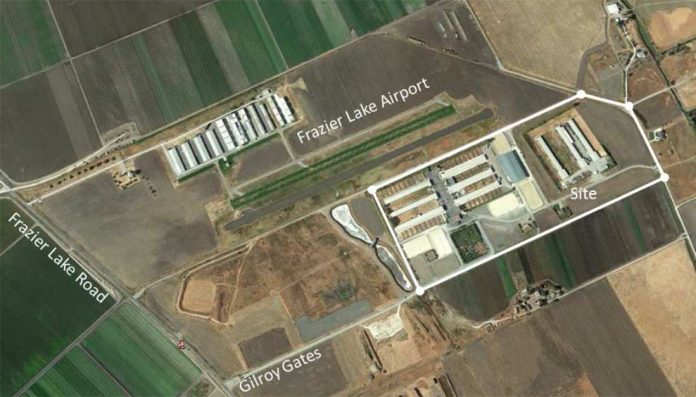
The 2018 Farm Bill made it legal to grow commercial hemp in the U.S. for the first time in half a century, but fewer than half of California’s counties allow the crop. San Benito is one of them.
Growers are now storming San Benito and other counties to get a piece of the burgeoning industry. The county is drafting an ordinance for additional regulation of hemp cultivation, which could be a gold mine for growers and taxpayers.
San Benito County Agricultural Commissioner Karen Overstreet said her office has been receiving “a lot of inquiries” about growing hemp in the county.
“One of the reasons why the county is getting a lot of interest is because 50 percent of the state is not allowing it at this time,” she said. “That drives them to the various counties that are allowing it.”
The Hemp Farming Act of 2013, which authorized the commercial production of industrial hemp in the state, became effective in 2017.
The 2014 Farm Bill had allowed hemp to be cultivated for research purposes across the country. Last year, the 2018 Farm Bill changed hemp from a controlled substance to an agricultural commodity, opening up a new source of revenue for California farmers.
Hemp fiber is noted for its strength and durability, and is used for products such as apparel, rope and more.
Overstreet said San Benito County has 12 registered commercial hemp growers, two of which are seed breeders. In addition, three hemp research operations are registered in the county.
Due to demand, seed shortages have been an issue.
“It’s been really difficult for people to find seed,” Overstreet said. “After the Farm Bill in December 2018, it opened the gates.”
Neighboring Santa Clara County has enacted a moratorium on hemp cultivation.
Hemp campus details
The new crop opens up not only a potential for new revenue for farmers and related processing facilities, but also for local governments.
According to a development agreement approved by the San Benito County Board of Supervisors, Pacific Bay Capital Group will pay 1 percent of the hemp operation’s gross annual receipts to the county. It will also be required to maintain Frazier Lake Road for one mile in each direction from the facility’s main entrance.
Skip Spiering, a representative of the San Benito Hemp Campus, said he appreciated the partnership between the county and the developers in drafting the development agreement.
“We think this will be very beneficial to the county,” he said.
Located south of the Frazier Lake Airpark, the facility was originally constructed in 1988 as a turkey egg-raising farm.
According to county principal planner Taven M. Kinison Brown, the hemp campus would be home to facilities for hemp cultivation and hemp-derivative manufacturing and CBD oil extraction. The manufacturing processes will include various hemp products, which have not been specified.
The developer also proposes to construct 60,000 square feet of greenhouses. The facility will also process hemp grown elsewhere in the state.
“Staff views this project as an adaptive reuse of an underutilized agricultural production facility,” Brown said. “Aside from two 30,000-square-foot liner hoop houses (or more formalized structures) to be added between existing structures on the developed property, there will virtually be no new construction, nor the impacts associated with new development and construction.”
The developer anticipates hiring 75 to 100 employees once the facility is fully built out, with a payroll between $3 million to $4 million annually.
It is unknown if Gilroy Gaits will move or cease operation altogether. Manager Heather Castro said the facility is still operational, but did not know what the future held.

Gilroy Gaits owner Kevin Chambers could not be reached for comment.
In 2011, the county approved a permit for an expansion of Gilroy Gaits, which would have, among other things, seen construction of a main stadium to hold more than 3,800 people and a 6,000-square-foot restaurant. The permit expired since construction did not begin within a year of it being approved, according to Brown.
Traffic concerns neighbors
A group of Lake Road residents spoke during the June 19 planning commission meeting, expressing concern that the hemp operation would further impact their narrow, poorly maintained road.
The road runs behind Gilroy Gaits, with a gated entrance leading into the property.
Melody Gomes said she has lived on Lake Road for 30 years. She said drivers cut through Gilroy Gaits and onto Lake Road in order to beat the traffic that backs up on Frazier Lake Road.
The hemp campus “will not only impact the traffic, it will also impact our nice little community that we have out there,” she said. “If you like your neighborhood, think about how you would like this processing plant next to you.”
Lake Road resident David Leonardo said the narrow road makes it difficult for two vehicles to pass each other while going in different directions. He added that he appreciated that the air inside the hemp campus would be running on a closed loop system, preventing odor from escaping.
“To smell marijuana 24/7 would be horrible,” he said. “I would sell my place.”
Spiering said that per the conditions of the agreement, work traffic will come and go from Frazier Lake Road, with Lake Road only being used for emergency access.
Twenty truck trips per month are expected to leave the facility with extracted fibers and products.









